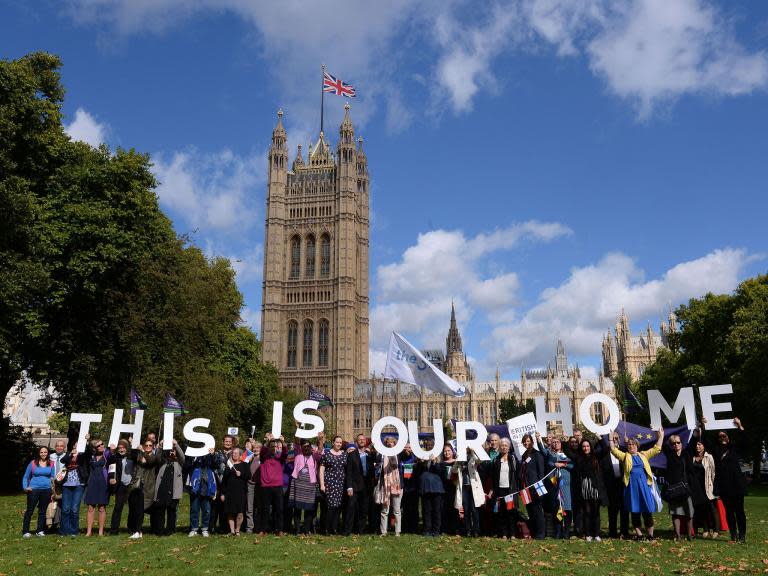Three quarters of EU workers currently in UK would not be eligible under proposed immigration shake-up
Three quarters of European Union workers currently in the UK would have been ineligible to come and work in Britain if a future government acted on recommendations made by the Migration Advisory Committee (MAC) this week.
The findings, from an analysis by think tank the Institute for Public Policy Research (IPPR), emphasise the UK economy’s heavy reliance on low-skilled labour from the continent and will reinforce the concerns of business about a key proposal in the MAC report.
The MAC said on Tuesday that if the UK was to design the UK immigration system from scratch after Brexit it should seek to end flows of low-skilled workers from the EU and to privilege the high-skilled.
This would include a £30,000 minimum salary threshold.
But the British Chambers of Commerce described the prospect of a sudden cut-off of EU low-skilled migration as potentially “disastrous” for UK firms. A number of other trade groups, from builders to food and drink manufacturers, echoed the warning.
The IPPR said that, under the regime advocated by the MAC, 97 per cent of EU employees in the hospitality industry – such as hotels and restaurants – would be ineligible to come here.
In transport and storage, 95 per cent of the current EU workforce in the UK would be ruled out.
Even in high-paid sectors such as finance, a quarter of the current EU workforce would be ineligible.
It calculated the shares by analysing Office for National Statistics data on the workforce, which includes the salaries of full-time employees and their nationality.
There are currently around 2.28 million EU nationals working in the UK, down from a peak of 2.38 million last year.
The Independent’s Drop The Target campaign calls on the government to halt its policy of trying to cut net migration to tens of thousands per year.
“While EU citizens currently in the UK are expected to be protected under the terms of the UK-EU withdrawal agreement, the analysis suggests that the overall impact of the Migration Advisory Committee’s proposals would be dramatic for businesses recruiting migrants from the EU in future,” said Marley Morris of the IPPR.
She said that the government should incentivise employers to pay and train more rather than cutting off low-skilled EU migration.
Despite its controversial recommendation on low-skilled migration, the MAC busted a series of myths about EU migration.
It reported evidence that EU citizens have little impact on UK workers’ wages, pay more in taxes, have no adverse impact on young Britons’ schooling, and are not linked to increasing crime.
It also said that EU migrant workers contribute £2,300 more per year to the UK than average British citizen.
Alan Manning, the MAC’s chair wrote: “If – and this is not a MAC recommendation – immigration is not to be part of the negotiations with the EU and the UK is deciding its future migration system in isolation, we recommend moving to a system in which all migration is managed, with no preferential access to EU citizens.”
In reality some form of preferential access for EU workers may well be offered by the government in exchange for post-Brexit participation for the UK in the single market.

 Yahoo News
Yahoo News 

